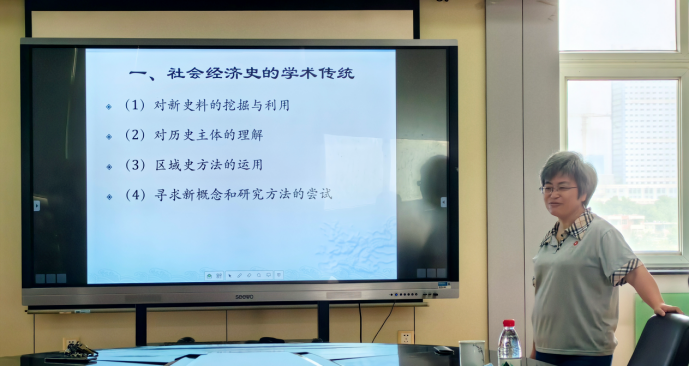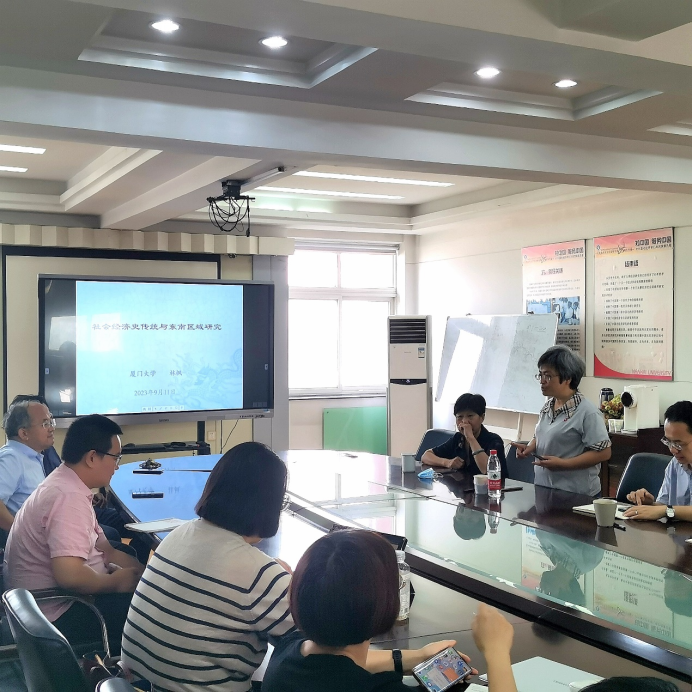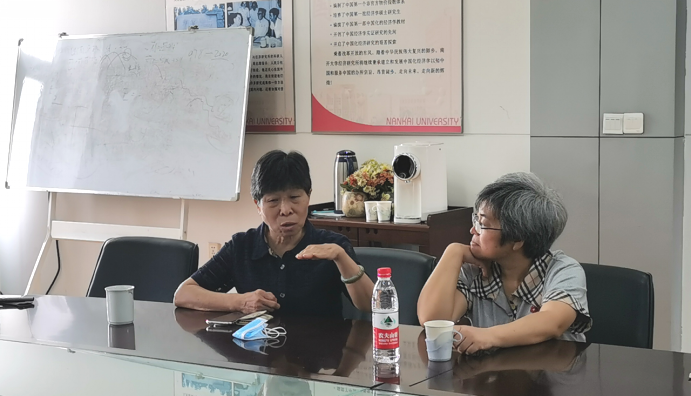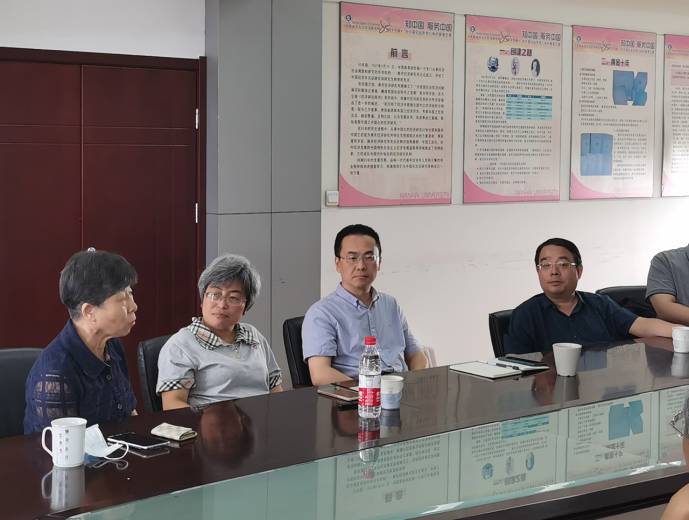Lecture Review | The Tradition of Socioeconomic History and Research in the Southeastern Region (Lin Feng)
On the morning of September 11th, the Nankai Institute of Economics held a series of lectures titled Commemorating the 100th Anniversary of the Establishment of NKU's School of Economics in the large conference room on the eighth floor of the School of Economics. The lecture titled The Tradition of Socioeconomic History and Research in the Southeastern Region was delivered by Lin Feng, Vice President of the Chinese Economic History Society, Vice President of the Society of Chinese Commercial History, and professor at the School of History and Cultural Heritage of Xiamen University. Associate Professor Gong Guan served as the host, and nearly thirty teachers and students from the School of Economics and the Faculty of History attended the lecture.

During the lecture, Professor Lin Feng first provided an introduction to the academic tradition of socioeconomic history. She pointed out that research in socioeconomic history emphasizes the exploration and utilization of folk documents, following the principle of combining fieldwork and historical materials, and continually expanding new sources of historical records. In terms of research subject, it adheres to a people-centered historical perspective, emphasizing the understanding of history from the intrinsic logic of the socioeconomic lives of the common people. In terms of research content, it starts from the general premise of examining social structure and seeks to explore the interconnections and mutual influences between economic structure and class structure, as well as between the economic foundation and the superstructure. At the same time, special attention is given to regional in-depth research and comparative studies, seeking common patterns of economic development from specific socioeconomic phenomena. In terms of research methodology, it is characterized by the combination of social history and economic history, studying economics from the perspective of social history and analyzing society from the perspective of economic history.
Subsequently, Professor Lin Feng reviewed the influence of anthropology theory and methods, as well as the practice of regional studies in South China. She pointed out that anthropology emphasizes the study of social structures and systems of meaning, and the application of anthropological methods has facilitated the transformation of research in socioeconomic history. In this context, research in the socioeconomic history of South China places a greater emphasis on seeking grassroots voices and exploring changes in the relationship between the state and society from a grassroots perspective.

The attendees, including teachers and students, engaged in a lively discussion on the topic of the lecture. Professor Wang Yuru pointed out that economic history is a highly interdisciplinary field that requires the integration of specialized knowledge from various disciplines for a comprehensive interpretation and analysis of historical data.

The atmosphere at the discussion session was enthusiastic, with teachers and students actively participating in the exchange. This lecture provided everyone with insights into the methods and perspectives of socioeconomic history research, offering new leads for further study and research.
